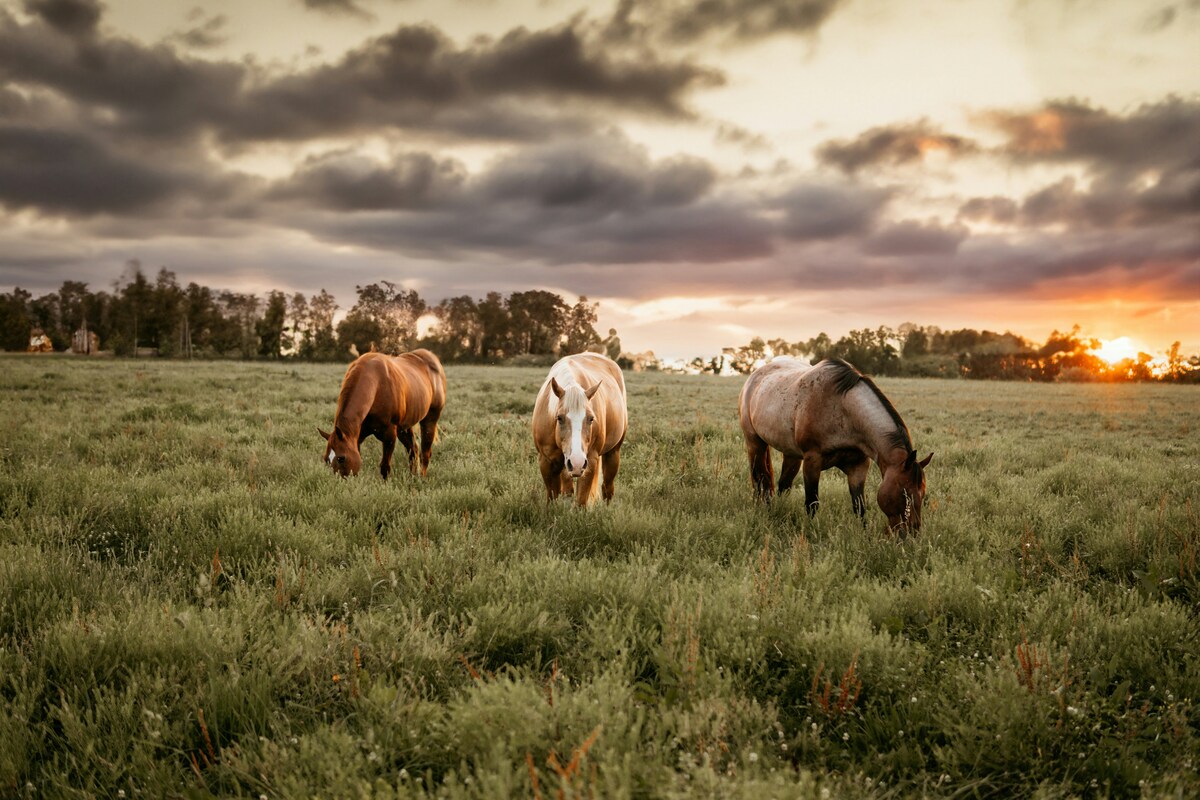Equine Management

On average, a horse can weigh nearly 1,000 pounds and defecate roughly 13 times a day. This roughly equates to about 50 pounds of wet manure a day—including urine. The bedding that is gathered in the animal waste also contributes to the weight. The bedding can increase the total volume to 2-3 feet of daily waste.
For one ton of manure, the nutrients that can be found include nitrogen, phosphorus, and potassium—with bedding having the potential to also affect the nutrient reading. If not managed properly, manure runoff can cause pollution and negatively impact local waterbody sources.
Causes of pollution can look like:
-
- Overapplication
- Improper disposal
- Stockpiles near streams, ponds, drainage ways
- Spreading in a drainage way
Solutions / Responsible Disposal:
-
- Spreading on fields
- Selling
- Storing
- Composting
- Pay for a removal service
Manure Storage
Keeping animal waste as dry as possible results in less waste that must be transported elsewhere. Consider an NRCS Conservation Practice for a waste storage facility, which will help prevent runoff and is also helpful for winter storage since Ohio does not allow manure to spread on frozen or snow-covered ground. Cost-share options may be available for large facilities.
Manure Composting:
Composting utilizes an accelerated decomposition process that uses the organisms and bacteria found growing in the soil to help break down manure. The process requires proper oxygen and moisture levels, as well as a proper feedstock mixture, to ensure proper microbial activity. The composting piles must be turned to ensure proper aeration, and the final product is crumbly, has a low odor, and resembles topsoil.
Also, consider the Ohio Livestock Manure Management Guide by OSU Extension: https://agcrops.osu.edu/sites/agcrops/files/imce/fertility/bulletin_604.pdf.
ODA & Agricultural Pollution Abatement
The Ohio Department of Agriculture administers a set of laws and rules that outline how manure storage and application should be properly handled around the state's waters. If you or your operation handle manure and are not sure if you comply, these rules and regulations can be found in Section 901:13-1 of the Ohio Administrative Code.
If you have questions, contact a technician at Warren County Soil & Water Conservation District at (513) 695-1337 or Warren County Extension at (513) 695-1311.
Article provided by the Warren County Soil and Water Conservation District. For more information about the Warren County SWCD, visit their website at warrenswcd.com.

